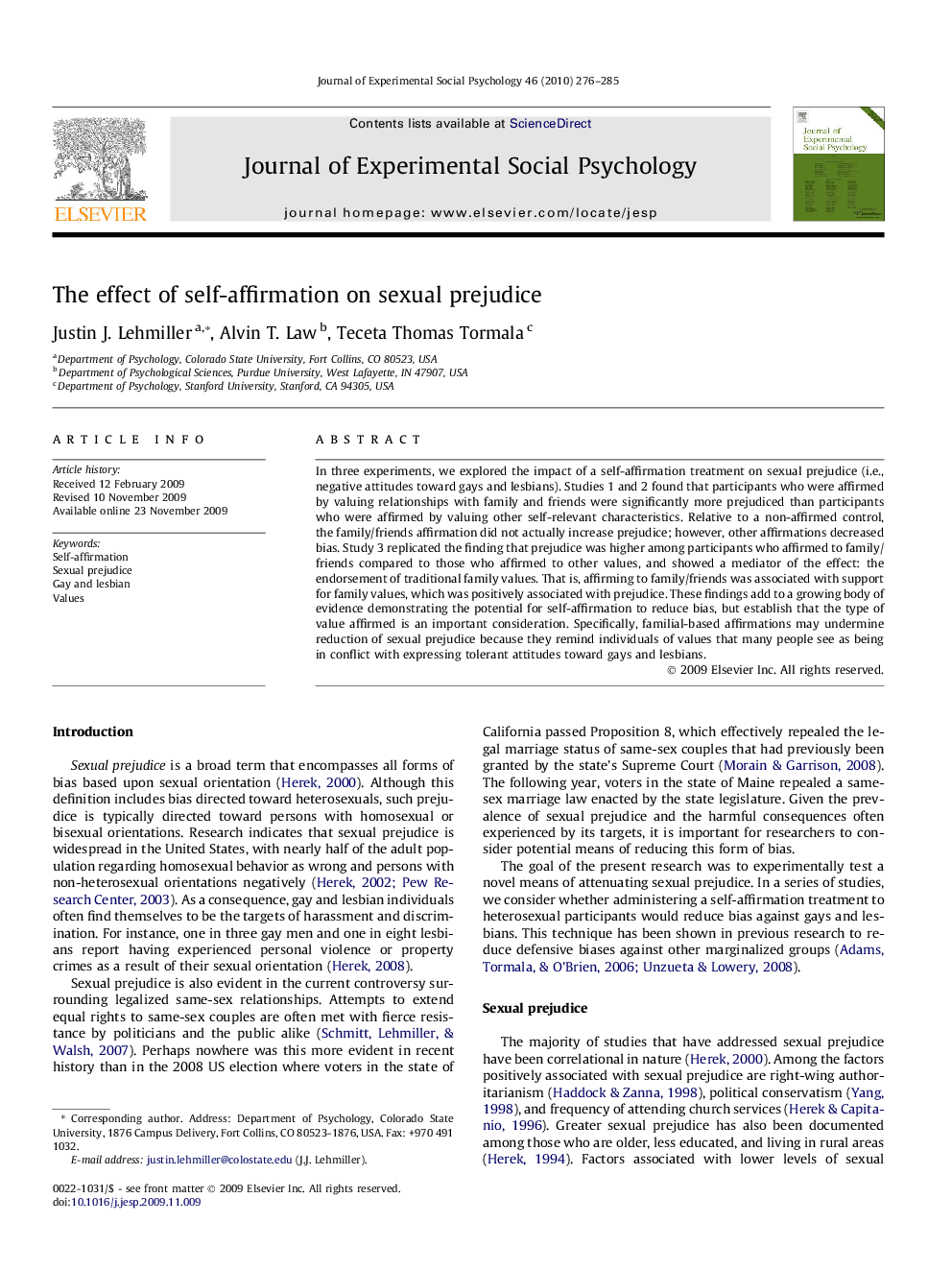| Article ID | Journal | Published Year | Pages | File Type |
|---|---|---|---|---|
| 948450 | Journal of Experimental Social Psychology | 2010 | 10 Pages |
In three experiments, we explored the impact of a self-affirmation treatment on sexual prejudice (i.e., negative attitudes toward gays and lesbians). Studies 1 and 2 found that participants who were affirmed by valuing relationships with family and friends were significantly more prejudiced than participants who were affirmed by valuing other self-relevant characteristics. Relative to a non-affirmed control, the family/friends affirmation did not actually increase prejudice; however, other affirmations decreased bias. Study 3 replicated the finding that prejudice was higher among participants who affirmed to family/friends compared to those who affirmed to other values, and showed a mediator of the effect: the endorsement of traditional family values. That is, affirming to family/friends was associated with support for family values, which was positively associated with prejudice. These findings add to a growing body of evidence demonstrating the potential for self-affirmation to reduce bias, but establish that the type of value affirmed is an important consideration. Specifically, familial-based affirmations may undermine reduction of sexual prejudice because they remind individuals of values that many people see as being in conflict with expressing tolerant attitudes toward gays and lesbians.
